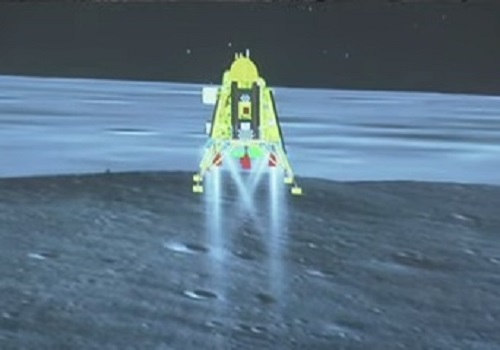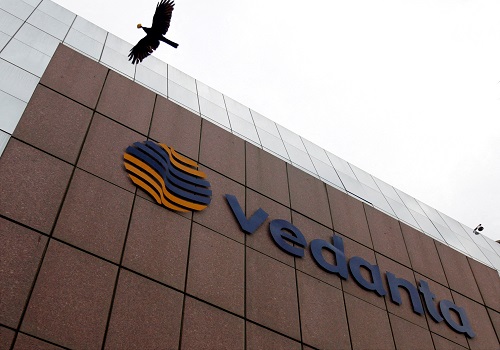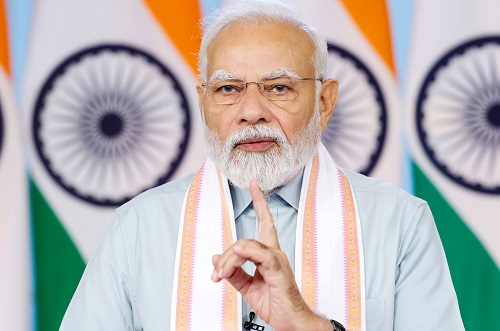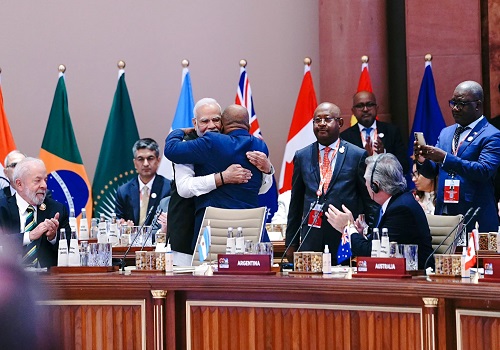With India on top of the moon, experts expect positive policy changes

India landing on the moon is expected to increase the government’s spending on scientific space missions including a Mars landing, higher outsourcing by the Indian space agency, said industry experts.
The moon landing will also have a positive credibility rub off effect on the Indian private space sector players in the international arena and a big boost for the youth of this country having a scientific bent of mind and space enthusiasts, they said.
In the long term, India will have a share in what is being called the lunar economy -- moon missions for others for a fee, mining of resources on the moon, setting up of colonies there and others, experts added.
“I anticipate that the success of Chandrayaan-3 would increase government spending on science missions. ISRO would go further towards fulfilling their new mandate of doing research missions,” Sunil Indurti, Director, Azista BST Aerospace Pvt Ltd, told IANS.
As a result the rocket and satellite manufacturers have to collectively fill into the Indian Space Research Organisation’s (ISRO) manufacturing responsibility.
This is a good challenge for the private sector as well as for the nation. The outcome of this situation will be generation of capacity in the private sector, Indurti added.
“In the immediate term, the moon mission success may spur further actions by ISRO. As a result there will be increased business opportunities for private industries as ISRO may increase its outsourcing,” Antrix Corporation Ltd’s former Chairman and Managing Director Rakesh Sashibhushan told IANS.
Antrix Corporation is the commercial arm of India's Department of Space.
Sashibhushan added that the success of Chandrayaan-3 is a big boost for the youth of this country having a scientific bent of mind and space enthusiasts. Now, several educational and research institutions may get into space sector research.
However, the success of ISRO’s earlier interplanetary missions – Chandrayaan-1, Mars Orbiter Mission (MOM) – has not resulted in any satellite manufacturing orders from overseas or increased enquiries for orbiting satellites with Indian rockets.
“I’m not sure about the past, but this is the first landing on the south side by any nation. This mission has greater merit. And ISRO is more focused on science than they were at any time in the recent years. So, I anticipate more funding for such challenging missions. Maybe to land on Mars soon,” Indurti remarked.
Be that as it may, the industry now expects the government to come out with the revised Foreign Direct Investment (FDI) regulations sooner, announce fiscal incentives and also pass the Space Activities Bill.
“On the policy front, we are awaiting the FDI policy that allows investments under automatic route. Next year we expect the Space Activities Bill to be passed. The industry expects fiscal incentives like productivity linked incentive (PLI), soft funds and others for the Indian space sector to bloom,” Lt.Gen. AK. Bhatt (Retd), Director General, Indian Space Association, told IANS.
He added that the moon mission success has drawn the entire nation’s attention which in turn may bring in more players into the space sector. But space is unforgiving and some may fall by the wayside.
In the long term, ISRO has laid the foundation stone for exploitation of resources on the moon – like mining, tourism, building a lunar space station and others – by safely landing on the moon, Sashibhushan said.
“As human beings occupy the moon in the future, there will be space assets of India and other countries. Protecting those space assets will gain importance. Then the whole space will become an area of strategic importance. However, the moon cannot be a military post owing to its distance,” Bhatt said.
























